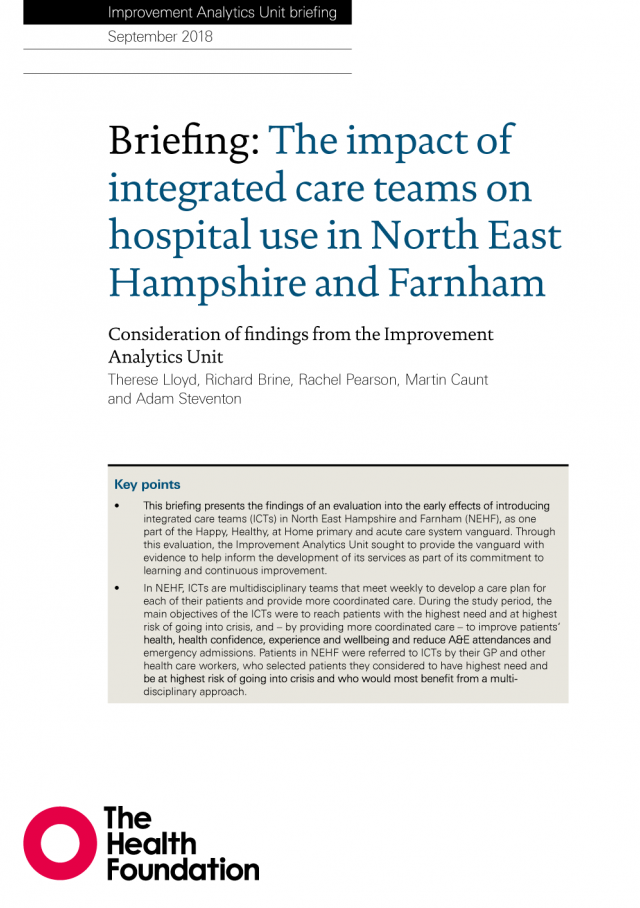The impact of integrated care teams on hospital use in North East Hampshire and Farnham Consideration of findings from the Improvement Analytics Unit
September 2018

Key points
- This briefing examines the early effects on hospital use of introducing multidisciplinary integrated care teams (ICTs) in North East Hampshire and Farnham (NEHF). It presents the findings of an evaluation conducted by the Improvement Analytics Unit, a partnership between NHS England and the Health Foundation
- During the first 23 months of the programme, patients referred to ICTs attended A&E more frequently, and were admitted as an emergency more often, than the control group.
- This may be because ICTs identified urgent unmet need among their patients or it may be that more time was needed for the benefits of ICTs on hospital use to be seen.
- A reduction in emergency hospital use may not be an appropriate objective for these type of multidisciplinary teams, at least in their early stages. Reducing emergency hospital use was only one of the objectives in this programme.
- The value of ICTs might lie in their potential to improve patients’ health, health confidence, experience of care and quality of life.
Patients with complex needs, long-term conditions, older age or frailty often receive fragmented care, delivered by multiple health professionals across different organisations.
This can result in poorly coordinated care and risks to quality and safety. Integrated care aims to improve patient care and experience by enabling different health care professionals to work together to deliver more coordinated care, and providing services around the needs of the patient. Integrated care projects often aim to also reduce hospital admissions and associated health care costs of patients with complex long-term conditions. However, the integrated care projects that have been evaluated rigorously over the last decade or longer have had mixed results in this respect.
This report presents the findings from the Improvement Analytics Unit’s evaluation of integrated care teams (ICTs) implemented as part of the Happy, Healthy, at Home vanguard.
Further reading
Work with us
We look for talented and passionate individuals as everyone at the Health Foundation has an important role to play.
View current vacanciesThe Q community
Q is an initiative connecting people with improvement expertise across the UK.
Find out more

